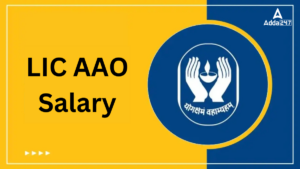Q1. The cell organelle storing substances like starch, oil and proteins is
(a) Vacuole
(b) Lysosome
(c) Plastid
(d) Golgi body
(e) None of the above
Q2. Lipids and proteins constituting the cell membrane are synthesized at:
(a) endoplasmic reticulum (b) mitochondria
(c) Golgi apparatus
(d) Lysosome
(e) None of the above
Q3. Which one of the following liquids is very good conductor of heat?
(a) Mercury
(b) Water
(c) Ether
(d) Benzene
(e) None of the above
Q4. Air is filled in vehicle tyres because
(a) it is non-conducting
(b) it is cheap
(c) it has low density
(d) it is highly compressible
(e) None of the above
Q5. During the change of state of matter the temperature of the substance
(a) increases
(b) decreases
(c) remains the same
(d) may increase or decrease
(e) None of the above
Q6. An egg when placed in ordinary water sinks but floats when placed in brine. This is because
(a) density of brine is less than that of ordinary water
(b) density of brine is equal to that of ordinary water
(c) density of brine is greater than that of ordinary water
(d) None of these
(e) All of the above
Q7. The cell organelle pertaining to energy release process is
(a) Lysosome
(b) Chloroplast
(c) Mitochondria
(d) Endoplasmic reticulum
(e) None of the above
Q8. A man is sitting in a boat which is floating in pond. If the man drinks some water from the pond, the level of water in the pond will
(a) rise a little
(b) fall a little
(c) remain stationary
(d) None of these
(e) None of the above
Q9. Which of the following is not directly formed from DNA
(a) DNA
(b) Protein
(c) m RNA
(d) t RNA
(e) None of the above
Q10. Why do two ice blocks join to form one block when pressed together?
(a) Melting point of ice is lowered with increase in pressure
(b) Melting point of ice increases with increase in pressure
(c) Melting point of ice remains unchanged with increase in pressure
(d) Melting point of ice is 0°C
(e) None of the above
Solutions
S1.Ans. (c)
Sol. Plastid is a double-membrane organelle found in plants, algae, and some other eukaryotic organisms. They are of different types such as chloroplasts, chromoplasts, gerontoplasts, & leucoplasts (used for storing starch and fats).
S2.Ans. (a)
Sol. The endoplasmic reticulum bearing ribosomes on their surface called rough endoplasmic reticlum (RER) which are actively involved in protein synthesis. The smooth endoplasmic retriculum (SER) is the major site for synthesis of lipid. In animal cells, steroidal hormones syntherized in SER.
S3.Ans. (a)
Sol. Mercury is very good conductor of heat as it is the only liquid metal. It is used in thermometer also.
S4.Ans. (d)
Sol. Air is filled in vehicle tyres because it is highly compressible.
S5.Ans. (c)
Sol. Heat given/taken by the substance is equal to the latent heat of fusion or vaporization of the substance. That is why the temperature of the substance remains the same during the change of state.
S6.Ans. (c)
Sol. An egg when placed in ordinary water sinks to the bottom as the density of egg is higher than the density of ordinary water. Density is the mass of a material per unit volume, thus, adding salt to water (brine) increases the density of solution because salt increases the mass without changing the volume. That is why, an egg when placed in brine would float.
S7.Ans. (c)
Sol. In the Aerobic respiration the complete oxidation of glucose takes place in mitochondria and energy is stored in the form of ATP. Mitochondria are also known as the power house of cell.
S8.Ans. (c)
Sol. The level of water in the pond remains unchanged.
S9.Ans. (b)
Sol. Proteins are polypeptides. They are linear chains of amino acids linked by peptide bonds.
S10.Ans. (a)
Sol. When two ice blocks are pressed together, little heat is generated due to pressure and of friction, which just melts the outer layer. When that melts, friction decreases and due to the low temperature of both the ice cubes, the water just refreezes.



 GA Capsule for SBI Clerk Mains 2025, Dow...
GA Capsule for SBI Clerk Mains 2025, Dow...
 The Hindu Review October 2022: Download ...
The Hindu Review October 2022: Download ...
 LIC AAO Salary 2025, Revised Structure, ...
LIC AAO Salary 2025, Revised Structure, ...





